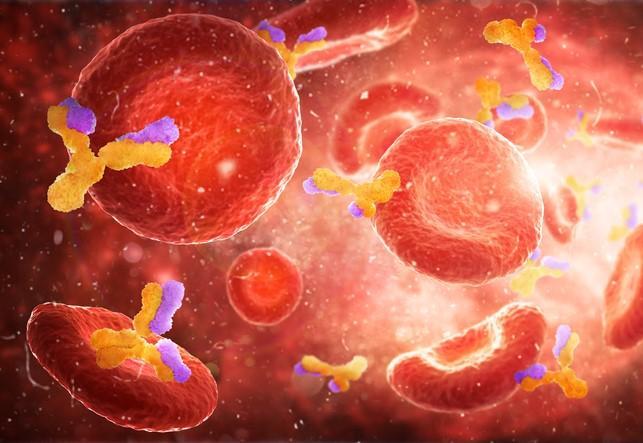Scientists who studied the blood samples of patients hospitalized for COVID who months later developed long COVID found distinct inflammation patterns that were tied to different symptoms that could be targeted with existing treatments, researchers based in the United Kingdom reported yesterday in Nature Immunology.
The team examined the blood work and clinical data of 426 people who were experiencing long COVID and who had been hospitalized at least 6 months earlier. They compared their blood findings to those of 233 patients who were hospitalized for COVID but didn't develop long COVID. The work of the research consortium was led by a team from Imperial College London (ICL).
Compared to patients who recovered, long-COVID patients' immune system activation patterns included inflammation of myeloid cells and activation of a family of immune proteins called the complement system.
Myeloid cells produce types of white blood cells that respond to damage and infection in organs and tissues. Overactivation of complement system has been linked to autoimmune and inflammatory conditions.
It is unusual to find evidence of ongoing complement activation several months after acute infection has resolved.
In an ICL press release, Felicity Liew, MBBS, the study's first author who is with ICL's Heart and Lung Institute, said, "It is unusual to find evidence of ongoing complement activation several months after acute infection has resolved, suggesting that long COVID symptoms are a result of active inflammation. However, we can’t be sure that this is applicable to all types of long COVID, especially if symptoms occur after non-hospitalised infection."
Overlapping symptom types, links to immune signatures
Researchers were also able to tease out a range of symptoms that patients experienced and identify ones that were most common. Certain symptom groups were associated with specific proteins. For example, people with gastrointestinal symptoms had increased levels of a marker called SCG3, which had earlier been linked to impaired communication between the gut and the brain.
The investigators found five overlapping long-COVID symptom subtypes with different immune signatures: fatigue, cognitive impairment, anxiety and depression, cardiorespiratory, and gastrointestinal. The team emphasized, however, that the groups aren't mutually exclusive.
Drugs such as IL-1 antagonists and JAK inhibitors might be useful for modulating the immune system components activated in long COVID, they wrote.
The group said a remaining question is whether the same immune system factors contribute to long COVID experienced by people who weren't hospitalized for their initial infections.





















